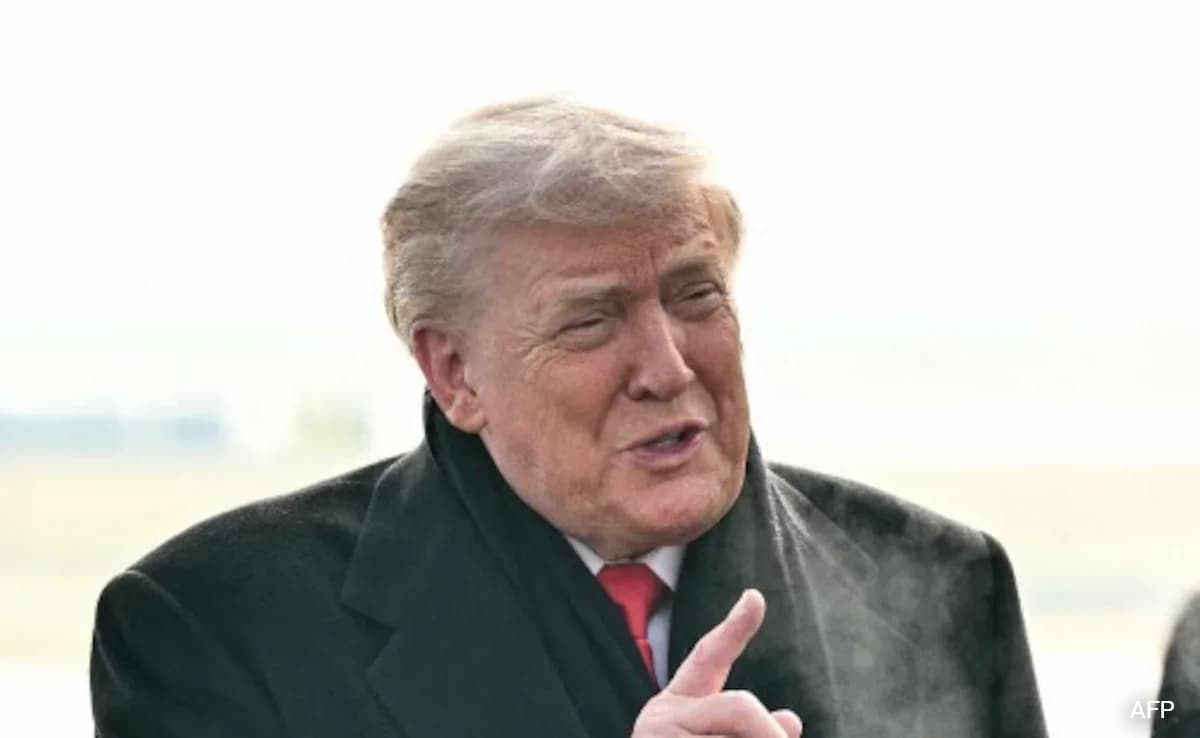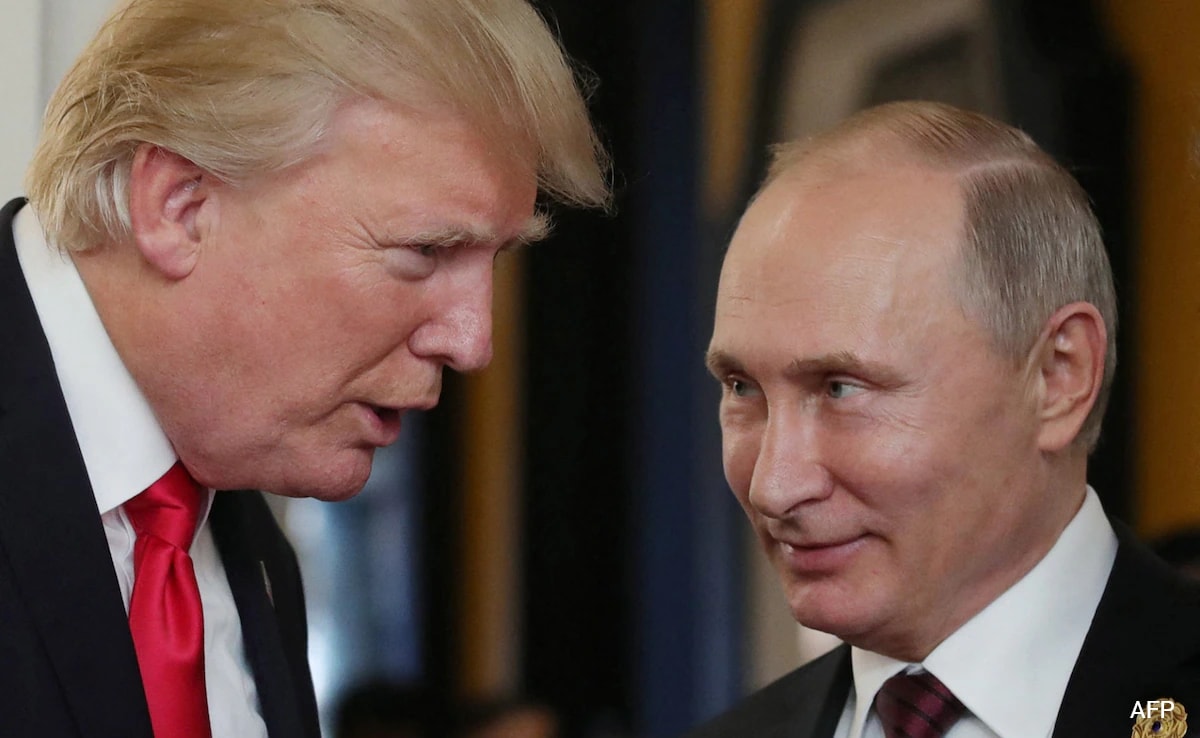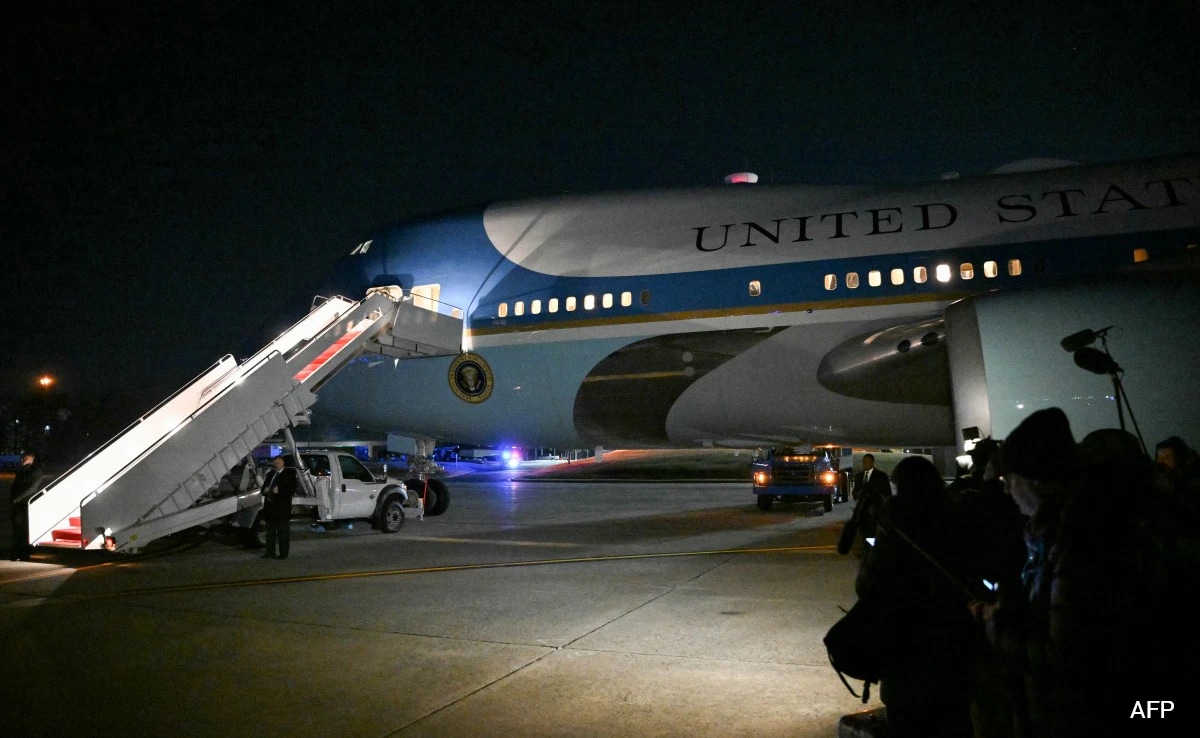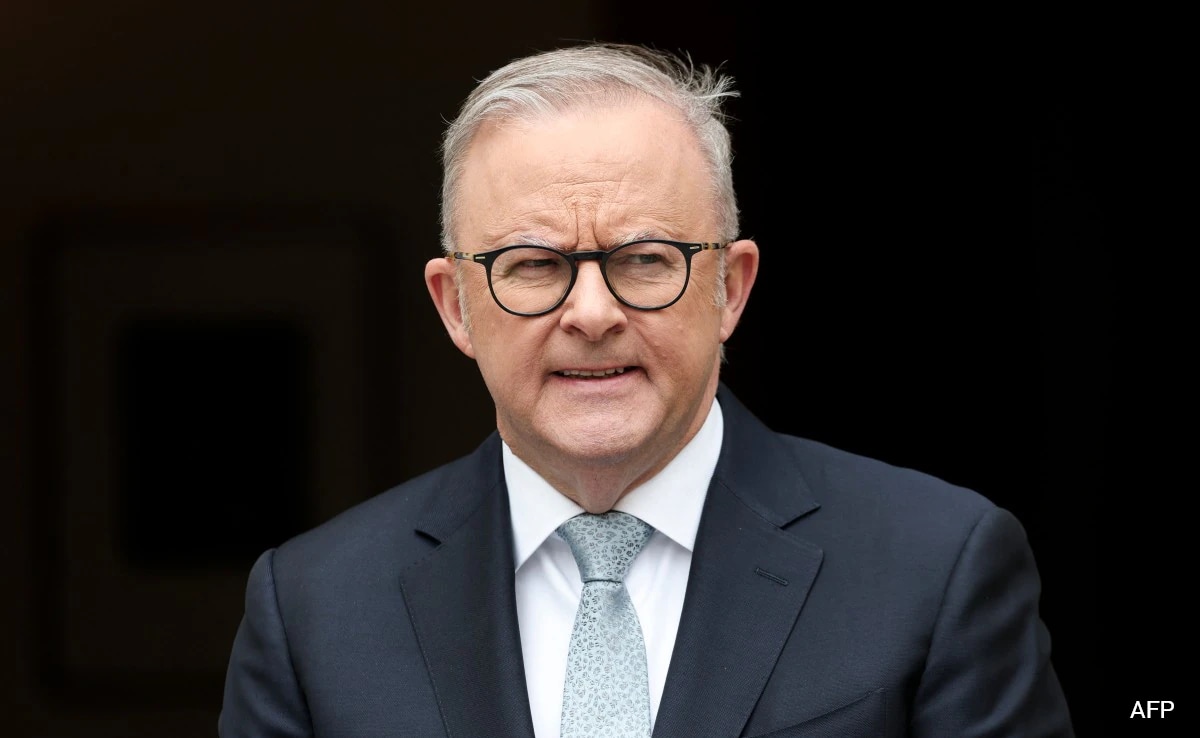As Russia faced stiff resistance from Ukrainian military and civilian defenders throughout the country, the capital, Kyiv, endured overnight attacks, according to military analysts. A massive convoy of Russian tanks and combat vehicles remained stalled about 20 miles north of the city’s center as the invading force grappled with fuel and food shortages. As militia forces set up roadblocks of branches, tires, cement blocks and old cars, the city’s mayor warned residents on Telegram that forces were coming “closer and closer to the capital.” Footage obtained by The Washington Post of the aftermath of a missile strike that hit Kyiv’s main TV tower and a nearby Holocaust memorial showed a gruesome scene of blown-out cars and buildings and several bodies on fire.
In Kharkiv, Ukraine’s second-largest city, a government official reported missile strikes on a police headquarters and university dormitory and a fierce firefight that repelled Russian “sabotage and reconnaissance groups” from a military hospital. “We are constantly subjected to missile strikes, strikes from the air, from aircraft,” the mayor of Kharkiv said in a Telegram post Wednesday. “The enemy is hitting residential areas.”
As the fighting raged in Ukrainian streets, President Biden told reporters that it’s “clear” Russian forces are deliberately targeting civilian areas in Ukraine. The remarks follow his first State of the Union address on Tuesday night, in which he said Russian President Vladimir Putin “badly miscalculated” when he “sought to shake the very foundations of the free world, thinking he could make it bend to his menacing ways.”
Here’s what to know
News•
News•
News•
Ukrainian ambassadors greeted around the world with standing ovations
Return to menuAs President Biden condemned Russia’s invasion of Ukraine and noted how Americans of all backgrounds have embraced Ukrainians, he told a divided Congress during his State of the Union address to show their support to another Ukrainian. After he said that “light will win over darkness,” the president on Tuesday night looked up at Oksana Markarova, the Ukrainian ambassador to the United States, who was seated with first lady Jill Biden in the House chamber.
“Let each of us, if you’re able to stand, stand and send an unmistakable signal to the world, to Ukraine,” President Biden said.
Markarova was greeted to a 40-second standing ovation from Democrats and Republicans alike inside the chamber. Many lawmakers from both parties wore bright blue or yellow blazers or scarves, the colors of the Ukrainian flag. While guests at the event were waiving Ukrainian flags, Markarova appeared overwhelmed by the outpouring of support as she thanked lawmakers and hugged the first lady.
Biden says ‘it’s clear’ Russia is deliberately targeting civilian areas in Ukraine
Return to menuIn an exchange with reporters outside the White House on Wednesday morning, President Biden was asked whether Russia is deliberately targeting civilian areas in Ukraine.
“It’s clear they are,” Biden replied.
On whether the United States might consider banning Russian oil imports, Biden said only that “nothing is off the table.”
The president declined to say whether he believes the United States should have a permanent military presence in Poland and other Eastern European countries, telling reporters, “That’s a decision for NATO to make.”
He also said it is up to Ukrainian President Volodymyr Zelensky whether to remain in Ukraine or flee to safety.
“I think it’s his judgment to make, and we’re doing everything we can,” Biden said.
Videos show aftermath of bombing in Kharkiv
Return to menuPlumes of smoke rise from the top of a building on fire in Kharkiv before the roof collapses, bringing chunks of metal crashing to the ground. Across the street, a blaze engulfs the top of another structure.
Videos from Ukraine’s second-largest city, Kharkiv, verified by The Washington Post, show emergency responders walking through debris toward buildings with their windows blown out after local officials reported attacks on the city center. Firefighters hosed down the flaming roofs, while rescuers pulled out a person covered in dust from the rubble and moved them out on a stretcher.
An official in the eastern city said Wednesday that missile strikes hit a police headquarters and university building, while a fierce firefight had repelled Russian “sabotage and reconnaissance groups” from a military hospital. “We are constantly subjected to missile strikes, strikes from the air, from aircraft,” the Kharkiv mayor, Ihor Terekhov, said in a Telegram post.
Earlier footage from Kharkiv on Tuesday showed a missile hitting an administration building, a strike in which a Kalibr cruise missile may have been used, according to Steven De La Fuente, a graduate research assistant at the Middlebury Institute of International Studies. He said the working assessment was based on the wings along the missile’s midspan but added that positively identifying the munition would be difficult.
Ellen Francis contributed to this report.
Atomic energy agency warns war in Ukraine brings risk of nuclear accident
Return to menuVIENNA — The head of the International Atomic Energy Agency warned Wednesday that the war raging in Ukraine could trigger a nuclear accident and urged all combatants to be careful.
Two sites where radioactive materials are present have already been hit in the fighting, Rafael Mariano Grossi, director general of the United Nations’ nuclear watchdog, told reporters at a news conference in Vienna.
On Sunday, Ukrainian authorities informed the agency that Russian missiles had struck the site of a radioactive waste disposal facility in the capital, Kyiv. A day earlier, an electrical transformer at a similar waste disposal facility in Kharkiv was similarly damaged.
In neither incident was any radioactive material released, Rossi said.
He stressed that there is no immediate cause for concern at either of the two nuclear reactors that Russia has informed the IAEA it controls, Chernobyl and Zaporizhzhya, the largest nuclear reactor in Europe. Ukrainian nuclear regulators have told him that the plants are functioning normally under the supervision of Ukrainian staff while Russian troops appear to be in control of the territory immediately around them.
However, Rossi cautioned, “this does not mean everything is well.”
“One of the unique features of this situation is that this is an ongoing military conflict taking place in a country with a vast nuclear program,” he said.
Ukraine has one of Europe’s largest nuclear programs, with 15 nuclear reactors scattered around the country along with associated facilities, supplying half of Ukraine’s electricity. The war marks the first time a conflict has erupted in a country with a nuclear power network, he said.
“There is a lot of nuclear material present,” Rossi said. “You could have a situation where you have low-level waste, a release of radioactive material. What we have to ensure is that these things don’t happen.”
He refuted allegations by President Vladimir Putin that Ukraine has been seeking to acquire a nuclear weapon. The agency has no reason to question Ukraine’s “nonproliferation credentials” and had seen “no activities” that would suggest Ukraine is seeking to develop a nuclear weapon, Rossi said.
Ukraine reached an agreement with the United States and Russia in 1994 to turn over its nuclear weapons in exchange for security assurances. The nation had been left with the world’s third-largest nuclear arsenal after the dissolution of the Soviet Union.
Videos show defiant locals waving Ukrainian flags at Russian military
Return to menuDefiant Ukrainians waved their blue and yellow flag in front of Russian troops stationed in the city of Kherson, according to videos verified by The Post.
Russian tanks entered the key port city, which sits by the Black Sea close to the Russian-annexed Crimean Peninsula, as Russian state media claimed that Russian troops now controlled Kherson. In the early hours of Wednesday, a screenshot from a time-stamped security camera feed verified by The Post through satellite images and photos of the area showed a row of at least 15 Russian military vehicles parked in the city’s Freedom Square.
Later in the day, a video appeared to show Russian soldiers carrying wrapped Ukrainian flags away from a government building. Seconds later, four locals approach the military vehicles. A view of any interaction between the group and the troops is obscured by bushes, but a man wearing a white hoodie and a dark jacket walks away holding two Ukrainian flags high, one in each hand. The group taunts the soldiers.
A subsequent video appears to show the same man waving the flags in Freedom Square across from the Russian vehicles. Residents can be heard heckling the soldiers.
Kherson’s mayor said the city was still in Ukrainian hands.
Justice Department reveals details of new task force formed to enforce sanctions
Return to menuThe Justice Department is forming a new task force to enforce the sanctions and export restrictions that the United States and allies have imposed on Russia in response to its attack on Ukraine, officials announced Wednesday.
The group — called Task Force KleptoCapture — will be run out of Deputy Attorney General Lisa Monaco’s office, the Justice Department announced in a news release. Agents and prosecutors will examine, among other things, the use of cryptocurrency to evade sanctions, and will bring criminal cases and/or civil and criminal forfeiture laws to take assets belonging to those under sanctions, according to the release.
The release said the task force would be led by a prosecutor assigned to Monaco’s office who had come from the U.S. attorney’s office in Manhattan, and that the prosecutor “has a long and successful track record of investigating Russian organized crime and recovering illicit assets.”
A Justice Department spokeswoman declined to provide the person’s name.
“The Justice Department will use all of its authorities to seize the assets of individuals and entities who violate these sanctions,” Attorney General Merrick Garland said in a statement announcing the group’s creation. “We will leave no stone unturned in our efforts to investigate, arrest, and prosecute those whose criminal acts enable the Russian government to continue this unjust war.”
According to people briefed on the matter, senior Biden administration officials are preparing to dramatically expand the number of Russian oligarchs subject to U.S. sanctions.
With online callouts, Ukraine’s youngest minister is galvanizing Silicon Valley to stand up to Russia
Return to menuSix months ago, Mykhailo Fedorov, one of Ukraine’s deputy prime ministers, made a pilgrimage to Silicon Valley to discuss his country’s digital transformation. On Facebook, he posted a photo of himself arm-in-arm with Apple CEO Tim Cook in Palo Alto, Calif., praising him as the “most efficient manager in the world.”
On Tuesday, Fedorov had a less effusive message for Cook: Block App Store access in Russia.
“They kill our children, now kill their access!” he tweeted, tagging Cook.
As Russian missiles rain down on Ukraine, Fedorov has launched his own pressure campaign, tweeting at some of the world’s most powerful tech companies to take action to shut down Russian propaganda and disconnect Russia from the rest of the world. In the process, he has become the chief agitator of an industry that has long been reluctant to bend to political demands in any country or conflict, and he has done it without enacting laws or using economic leverage.
According to his deputy minister, Alex Bornyakov, Fedorov has pressed about 50 companies for aid while his staff has worked behind the scenes with a network of Ukrainian expats and regulators from other countries to get the companies to act. And it’s working: Since Fedorov began tweeting after last week’s Russian invasion, Facebook and YouTube have cracked down on Russian state media, and Google has disabled some features on Google Maps to protect the safety of Ukrainian citizens. And after Fedorov tweeted at Cook on Tuesday, Apple said it would pause all product sales in Russia.
WHO warns more Ukrainians could die ‘needlessly’ amid critical supply shortages
Return to menuMore civilians in Ukraine will die “needlessly” unless local officials can address the growing bottlenecks around key health supplies and the worsening risk of infectious disease, World Health Organization officials said in a briefing Wednesday.
WHO officials warned of critical shortages of oxygen supplies, saying that hospitals desperately need oxygen to treat more than 2,000 patients undergoing surgeries, suffering from covid-19 or receiving care for other conditions. At least three major oxygen plants in Ukraine have now closed, and it has been difficult to find drivers willing to transport oxygen because of the current safety risks, according to the WHO.
Some hospitals also face shortages of cancer medicine and insulin, a lifesaving treatment for people with diabetes, officials said, reiterating the need for establishing humanitarian corridors to ensure the safe distribution of aid.
“We’ve got a warehouse full of supplies in Kyiv, and we need to get those out. We’ve got oxygen supplies ready to come in from outside. We’ve got … the planes landing in Poland with very specialized medical supplies,” said Michael Ryan, executive director of the WHO’s emergency program. “If we do not get oxygen into the system and other critical drugs, people will die needlessly.”
WHO officials also said that an ongoing campaign to tamp down Ukraine’s polio outbreak is being disrupted and that the regional spread of the coronavirus remains a significant concern, after Ukraine dealt with a serious outbreak in recent weeks. They also said they were disturbed by video and images of Ukrainian patients being forced into makeshift shelters. They called local health workers’ actions heroic.
“Some of us have been in this game a long time, and we’ve developed very thick skins. But when you see nurses mechanically ventilating infants in basements of hospitals … even the toughest of us, we struggled to watch that,” Ryan said.
Israel’s Holocaust Museum is so dependent on a Russian oligarch that it wants to protect him from sanctions
Return to menuTEL AVIV — Yad Vashem, Israel’s official Holocaust memorial and museum, is embroiled in controversy after attempting to intervene in planned sanctions against Israeli-Russian billionaire Roman Abramovich, owner of the Chelsea Premier League soccer team and a longtime supporter of Russian President Vladimir Putin.
In a letter to U.S. Ambassador Tom Nides, Yad Vashem, together with the country’s chief Ashkenazi Rabbi David Lau and Sheba Medical Center director Yitshak Kreiss, asked that the United States not sanction Abramovich, a major donor to the memorial and other Jewish causes. They said that sanctioning him would cause harm to Jewish institutions that rely on him for don
.png)











 English (United States) ·
English (United States) ·  Turkish (Turkey) ·
Turkish (Turkey) ·